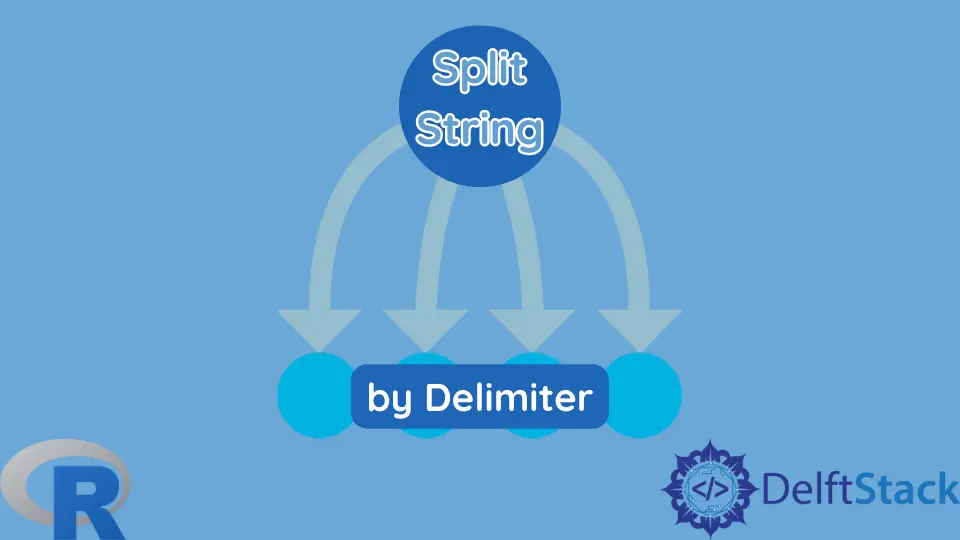Dividir String por Delimitador em R
-
Use
strsplitpara dividir string por delimitador em R -
Use
str_splitpara dividir string por delimitador em R

Este artigo irá discutir como dividir string por delimitador em R.
Use strsplit para dividir string por delimitador em R
strsplit é fornecido com a biblioteca R base e deve estar disponível na maioria das instalações sem pacotes adicionais. strsplit divide o vetor de caracteres em subcadeias pelo delimitador fornecido, que também é fornecido com um vetor de caracteres. O primeiro argumento da função é o vetor de caracteres a ser dividido. Nesse caso, especificamos o caractere de espaço para separar cada palavra na frase dada. Observe que a saída é fornecida como uma lista de vetores de caracteres.
library(dplyr)
library(stringr)
str <- "Lorem Ipsum is simply dummied text of the printing and typesetting industry."
strsplit(str, " ")
Resultado:
> strsplit(str, " ")
[[1]]
[1] "Lorem" "Ipsum" "is" "simply" "dummied" "text"
[7] "of" "the" "printing" "and" "typesetting" "industry."
Use str_split para dividir string por delimitador em R
Alternativamente, a função str_split também pode ser utilizada para dividir a string por delimitador. str_split faz parte do pacote stringr. Quase funciona da mesma maneira que strsplit, exceto que str_split também aceita expressões regulares como o padrão. No exemplo a seguir, passamos apenas a string fixa para corresponder. Observe que a função pode, opcionalmente, receber o terceiro argumento, que denota o número de substrings a serem retornadas.
library(dplyr)
library(stringr)
str <- "Lorem Ipsum is simply dummied text of the printing and typesetting industry."
str_split(str, " ")
Resultado:
> str_split(str, " ")
[[1]]
[1] "Lorem" "Ipsum" "is" "simply" "dummied" "text"
[7] "of" "the" "printing" "and" "typesetting" "industry."
Outro parâmetro opcional na função str_split é simplify, que vem em quarto lugar. Este parâmetro tem o valor FALSE por padrão, e isso força a função a retornar subcadeias como uma lista de vetores de caracteres. Se atribuirmos TRUE ao argumento fornecido, str_split retorna um array de caracteres.
library(dplyr)
library(stringr)
fruits <- c(
"apples and oranges and pears and bananas",
"pineapples and mangos and raspberries"
)
str_split(fruits, " and ")
str_split(fruits, " and ", simplify = TRUE)
Resultado:
> str_split(fruits, " and ")
[[1]]
[1] "apples" "oranges" "pears" "bananas"
[[2]]
[1] "pineapples" "mangos" "raspberries"
> str_split(fruits, " and ", simplify = TRUE)
[,1] [,2] [,3] [,4]
[1,] "apples" "oranges" "pears" "bananas"
[2,] "pineapples" "mangos" "raspberries" ""
Founder of DelftStack.com. Jinku has worked in the robotics and automotive industries for over 8 years. He sharpened his coding skills when he needed to do the automatic testing, data collection from remote servers and report creation from the endurance test. He is from an electrical/electronics engineering background but has expanded his interest to embedded electronics, embedded programming and front-/back-end programming.
LinkedIn Facebook